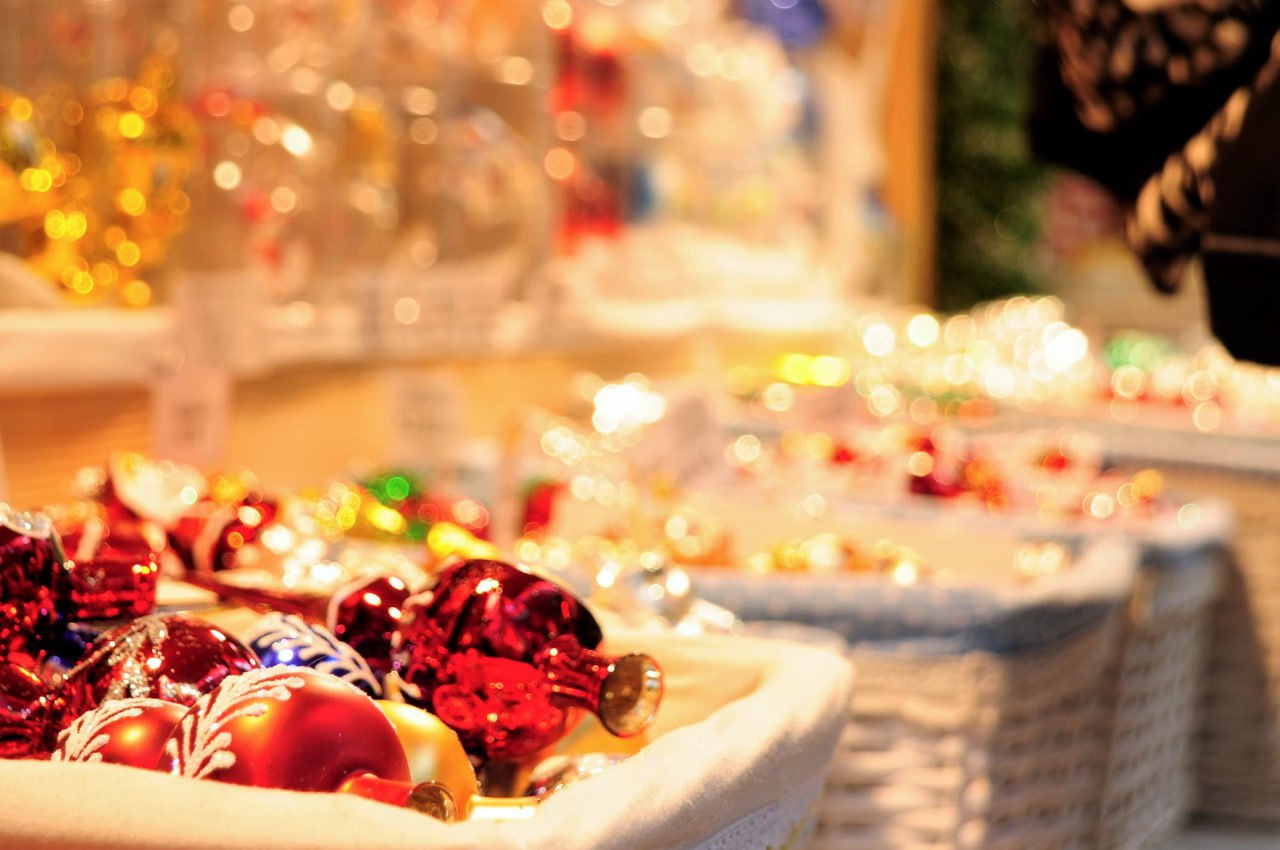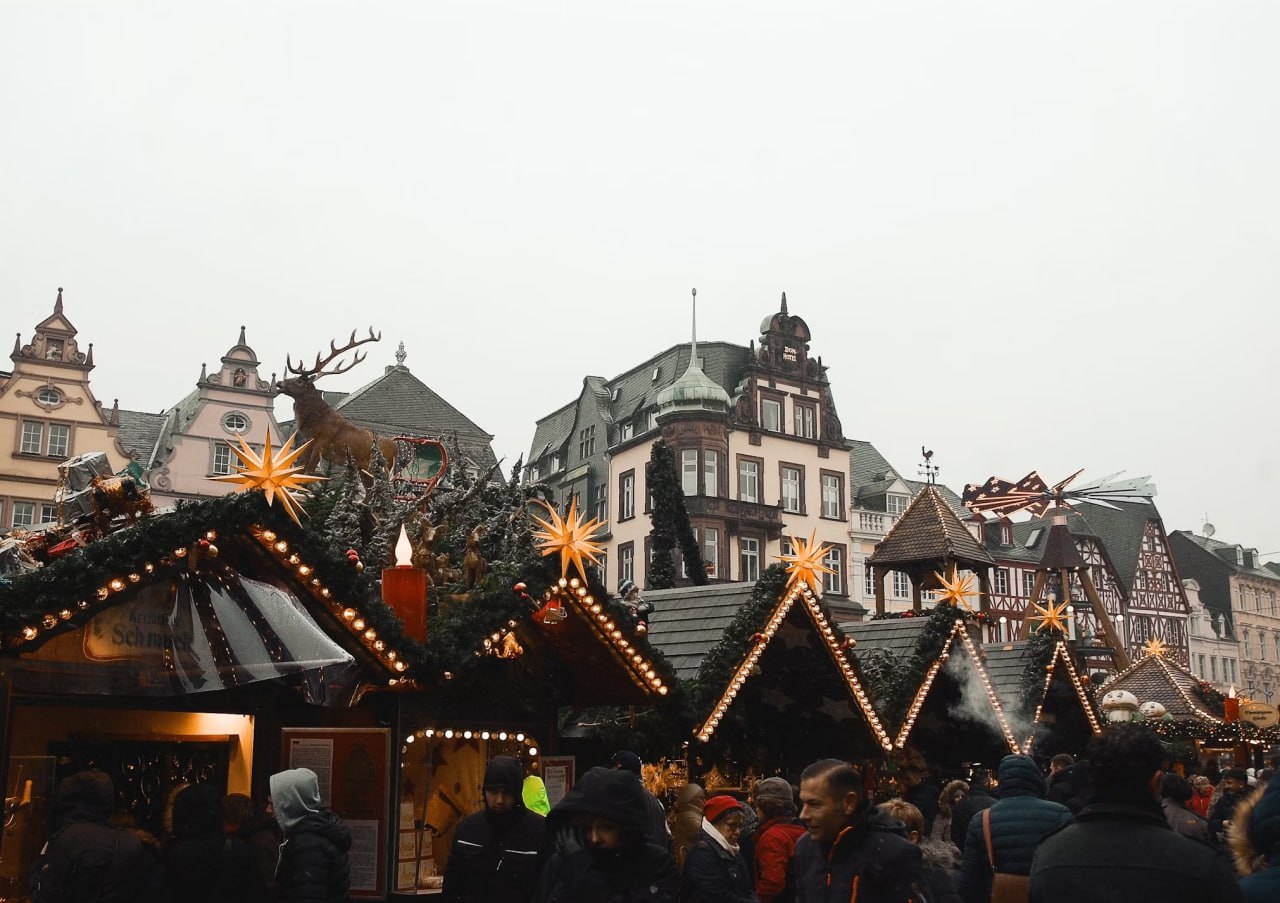Germany is famous for its Christmas markets, a timeless tradition that draws thousands of tourists from around the world. These markets are much more than shopping destinations; they are a way to experience the country's festive spirit, history, and unique culinary delights. Whether you're looking for traditional Christmas gifts or simply want to enjoy some gluhwein (hot mulled wine), the Christmas markets in Germany are a must-see. But what distinguishes the Christmas markets from the New Year markets, and how do they maintain their festive atmosphere well into the New Year? In this article, we'll dive deep into the Christmas markets in Germany, with a special focus on cities like Düsseldorf, Nuremberg, and Dresden.

1. Christmas Markets in Germany: A Tradition of Magic
The Christmas markets in Germany date back to the Middle Ages. These festive markets originally emerged as winter markets to celebrate the arrival of Advent and were held in various cities. Over time, they have evolved into a vibrant tradition that attracts millions of visitors each year. The markets are usually open from late November until Christmas Eve, filling German cities with an unmistakable holiday spirit.
1.1 History of Christmas Markets
The roots of Germany's Christmas markets go back to the 14th century, when the first winter markets were established. These early markets, like the famous Christkindlesmarkt in Nuremberg, became an integral part of German holiday customs. The markets were designed not only as places to shop for festive goods, but also as places for people to gather and enjoy the seasonal spirit together.
1.2 What to Expect at a Christmas Market
At a traditional Christmas market, you'll find an array of charming wooden stalls offering everything from handcrafted ornaments to delicious seasonal treats. One of the most iconic beverages at these markets is gluhwein, a hot mulled wine that helps warm you up during the chilly winter nights. You can also try local delicacies like Lebkuchen (gingerbread cookies), Bratwurst, and roasted chestnuts.
1.3 Popular Christmas Markets to Visit
- Nuremberg: The Christkindlesmarkt in Nuremberg is one of the oldest and most famous Christmas markets in Germany. Known for its festive atmosphere and stunning location near the Nuremberg Castle, this market attracts visitors from all over the world. The market is famous for its beautiful handcrafted decorations and unique gift items.
- Cologne: The Cologne Christmas markets are located near the famous Cologne Cathedral, one of the largest and most impressive Gothic cathedrals in Europe. With over 150 stalls offering food, gifts, and traditional German crafts, the Cologne markets are a must-visit.
- Dresden: The Striezelmarkt in Dresden is one of the oldest Christmas markets in Germany. It dates back to 1434 and features a wide variety of local food and crafts, including the famous Dresden Stollen, a traditional German Christmas cake.
- Düsseldorf: Düsseldorf’s Christmas markets are known for their mix of traditional German charm and modern festive flair. You can explore the Rhein-River Christmas Market or the markets at the Altstadt (Old Town), where you’ll find everything from handmade gifts to cozy cafes serving delicious mulled wine.
- Düsseldorf: Düsseldorf’s Christmas markets are known for their mix of traditional German charm and modern festive flair. You can explore the Rhein-River Christmas Market or the markets at the Altstadt (Old Town), where you’ll find everything from handmade gifts to cozy cafes serving delicious mulled wine. You can easily get to Düsseldorf from the airport with an airport transfer.
-

2. New Year Markets in Germany: Welcoming the New Year with Festivity
While Christmas markets have a long-standing tradition, New Year markets in Germany are a more recent phenomenon, often opening right after Christmas and lasting until the first days of January. These markets focus less on Christmas traditions and more on celebrating the arrival of the New Year with lively music, fireworks, and entertainment.
2.1 Differences Between Christmas and New Year Markets
New Year markets are distinct from Christmas markets in several ways. Whereas Christmas markets emphasize festive shopping and traditional German food and drink, New Year markets are all about celebrating the transition into the new year. The atmosphere is more energetic, with live music, dance performances, and larger-than-life celebrations taking place at these events. Additionally, many of these markets feature more variety in food and drink, with special cocktails and winter beverages available.
2.2 Festive Drinks and Entertainment
At New Year markets, you’ll still find the ever-popular gluhwein, but you may also come across winter cocktails and sparkling drinks like Sekt (German sparkling wine). Many of these markets also offer a wider selection of street food, music performances, and even small-scale fireworks displays to ring in the new year.
2.3 New Year Celebrations in Düsseldorf
Düsseldorf’s New Year markets are no less exciting. The city hosts large parties and musical performances at its many public squares and markets. As you enjoy the festivities, you can take in the spectacular views of the Rhine River, which is beautifully illuminated for the occasion. Don’t miss the thrilling fireworks display along the riverfront as the clock strikes midnight.
3. Exploring the Markets: What to Buy and What to See
3.1 Unique Gifts and Souvenirs
Whether you’re visiting a Christmas market or a New Year market, you’ll find a wide range of gifts and souvenirs to take home. From traditional German ornaments to hand-carved wooden toys, you’ll have plenty of choices. You’ll also find local specialties like the Nutcracker figurines, elaborate Christmas pyramids, and delicate lace decorations.
3.2 Fun for the Whole Family
Both Christmas and New Year markets are family-friendly events. You’ll find many attractions for children, including carousels, ice skating rinks, and puppet shows. These markets are a wonderful place to enjoy quality time with loved ones while taking in the festive atmosphere.
3.3 Music and Performances
Live music is another major part of the entertainment at the markets. During the Christmas season, you can hear traditional carols and Christmas music, while New Year markets often feature upbeat performances from local bands and DJs. The combination of festive music, warm drinks, and cheerful crowds makes for an unforgettable experience.
Conclusion: Why You Should Visit the Christmas and New Year Markets in Germany
Whether you're visiting the Christmas markets or the New Year markets, the experience of exploring these festive events in Germany is sure to be one of the highlights of your holiday season. The enchanting atmosphere, delicious food and drinks, beautiful gifts, and unforgettable entertainment are just a few reasons why Germany’s markets are famous worldwide. Don’t miss the chance to experience these magical markets in cities like Nuremberg, Düsseldorf, and Dresden!